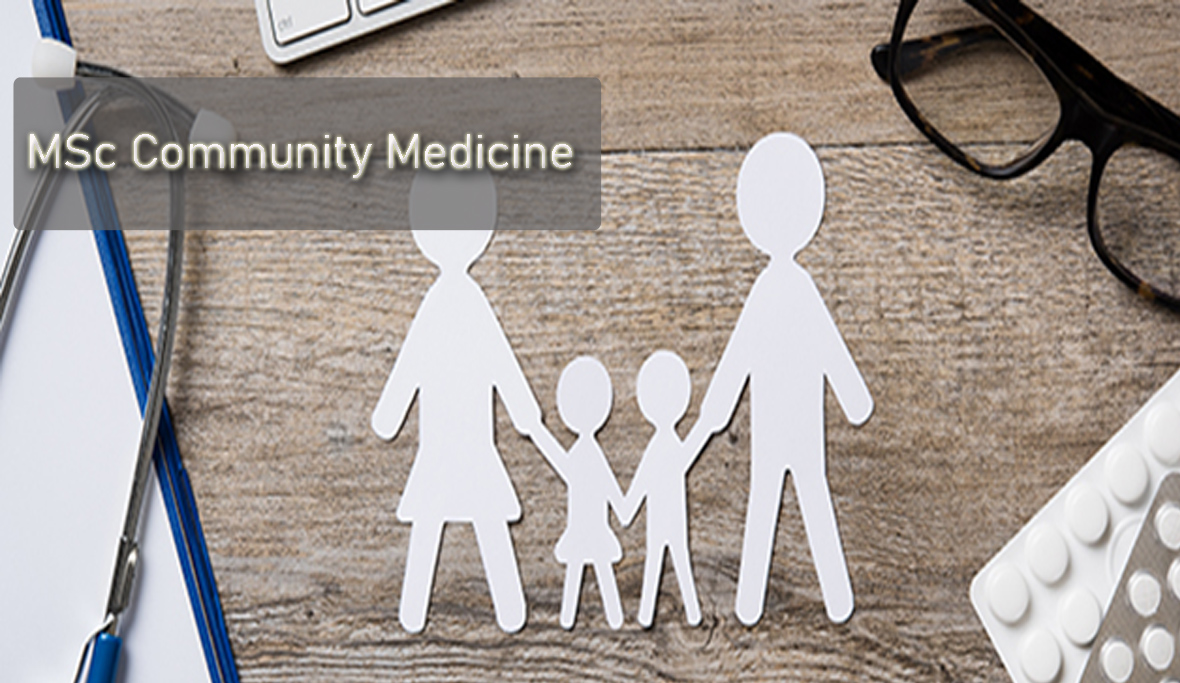
![]()
The Board of Study in Community Medicine (hereinafter referred to as BoS) of the Postgraduate Institute of Medicine (PGIM), is responsible for conducting the course leading to the degree in MSc Community Medicine.
This course has been conducted since 1987/88 by the Board of Study in Community Medicine which was one of the founder Boards of Study of the Postgraduate Institute of Medicine (PGIM) when it was established in 1980. This is a course which covers all the study areas relevant to the practice of Community Medicine (for the purpose of this prospectus the terms “Community Medicine” and “Public Health” are used interchangeably) and is based on the application of principles of “Primary Health Care”.
Accordingly, it deals with comprehensive health care ranging from promotive, preventive, curative and rehabilitative services, thus addressing the needs of both ill and well populations at the grass root level in the community.
Field of Community Medicine is rapidly advancing and, subject areas covered keep expanding with the resulting change in the roles and functions of the public health oriented middle level managers, providing services at the grass root level. It is thus important to keep pace with the rapid development of the specialty and the service needs and equip the service providers with required knowledge and skills and the positive attitudes to ensure delivery of comprehensive, quality care. Taking above into consideration, a curriculum revision was undertaken with the expansion of all relevant aspects, especially with regard to the modules on “General Management” and “Clinical Skills”.
This “Prospectus” will come into effect from 2017 for trainees who will qualify the Selection Examination in 2017 and shall replace the previous prospectus. The trainees who will be selected for the MD course shall follow the new MD Prospectus that will come into effect from 2017.
![]()
The MSc course in Community Medicine, Which is a SLQF level 9 qualification, offers training in the principles and practice of public health to equip trainees with knowledge, attitudes and skills that enable them to function as an efficient and effective middle level health professional in delivering public health services at the grass root level.
On completion of the MSc in Community Medicine (MSc-CM), trainees should be able to:
- Apply principles of public health in day-to-day practice as a middle-level health professional.
- Function as an efficient manager giving leadership to the health team.
- Plan, implement, monitor and evaluate public health intervention programmes.
- Promote community participation and inter-sectoral coordination to ensure effective implementation of health programmes.
- Possess clinical skills to carry out evidence-based preventive and promotive care in the community.
- Successfully carry-out research to define and describe public health problems.
- Critically evaluate research communications.
- Communicate effectively at individual and community level.
- Enhance personal and professional development of highest ethical standards.
![]()
- A medical degree registered with the Sri Lanka Medical Council.
- Satisfactory completion of internship acceptable to the Sri Lanka Medical Council.
- Satisfactory completion of one year of post internship in Medical/Clinical practice or teaching in a university/public/private sector institution in Sri Lanka acceptable to the PGIM.
The applicant should comply with all other PGIM regulations.
Please refer to the relevant prospectus for the most up to date information. The prospectus of a particular programme contains official information pertaining to a programme approved by the Board of Management, University Senate and the University Grants Commission